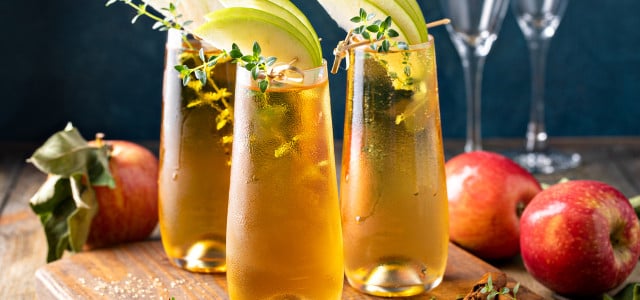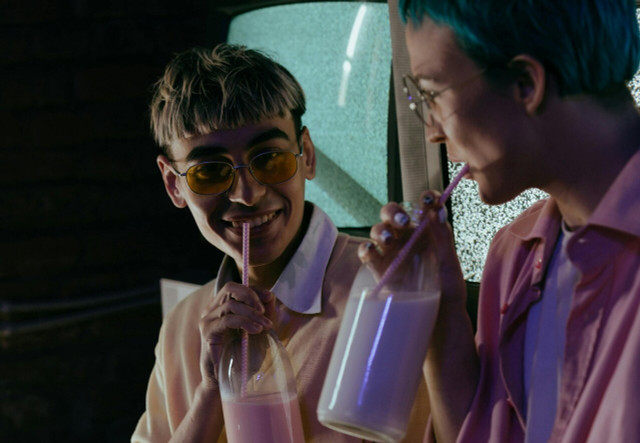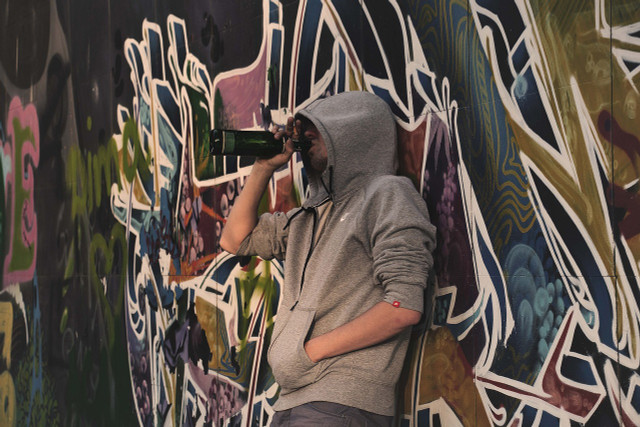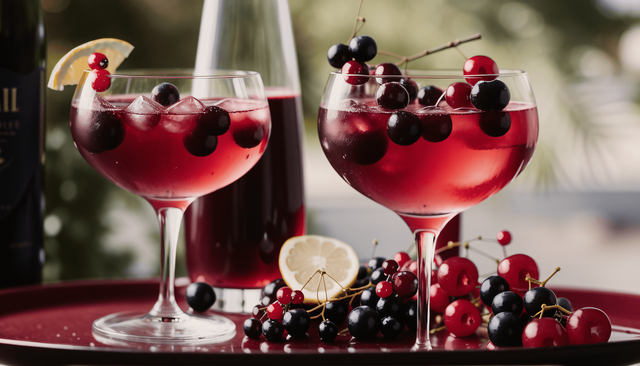
In a society where alcohol is an integral part of life, Sober Curiosity advocates the opposite approach. Young people in particular are increasingly abstaining from intoxication. What is behind this?
Sober Curiosity is a movement that appeals to many people. There are millions of posts on Instagram with hashtags like “soberlife,” “sober,” or “soberliving.” Many people also try to completely abstain from alcohol for the first time during Dry January or Sober October.
In addition, books and recipes as guides for an alcohol-free lifestyle are becoming increasingly popular. Even a few alcohol-free festivals are now attracting people to get a “natural high”. The desire to be sober – and to stay sober – is increasing, especially among younger people. We explain the trend.
Young people drink significantly less
For a long time, those who voluntarily abstained from drinking alcohol at parties had to endure outraged questions and reactions. But that could change with Sober Curiosity. Figures indicate that alcohol consumption among adolescents and young people is decreasing:
- In most high-income European countries, such as France, Great Britain and Spain, alcohol consumption among young people has been declining since the 2000s.
- The alcohol survey conducted by the Federal Center for Health Education shows that the number of 12- to 17-year-olds who regularly drink alcohol has also fallen significantly in Germany. In 2001, it was 17.9 percent, but in 2021 it was only 8.7 percent. In addition, the number of those who have drunk alcohol at least once in their lives by the age of 17 has fallen to 57.5 percent.
- According to the Federal Statistical Office, there were significantly fewer 10- to 19-year-olds hospitalized for alcohol poisoning in 2020 and 2021. In the years before the pandemic, there were significantly more.
- According to the alcohol survey, regular alcohol consumption among 18- to 25-year-olds has also noticeably decreased: to 32 percent.
The reasons why sobriety is particularly popular among Millennials and Gen Z are not entirely clear. One factor may be that access to information has become much easier thanks to the internet and social media, and therefore awareness of the dangers of alcohol has increased.
For example, a Google survey of Gen Z found that 86 percent associate alcohol with “fear,” “abuse,” and “vulnerability.” In addition, 76 percent think it’s important to always be in control of all areas of their lives. This could also be related to the use of social media, as 49 percent say they always have their “internet image” in mind when meeting people.
Sober Curiosity: Fun without intoxication?

(Photo: CC0 / Pexels / cottonbro studio)
Sober Curiosity is not explicitly limited to young people, however. The trend and the movement that goes with it originated in the USA. It specifically addresses the consumption of alcohol and its role in society.
Sober curiosity must also be distinguished from recovering alcoholics, who must remain completely sober because otherwise they risk relapse. Nevertheless, it is about abstaining from alcohol and questioning what role it plays in your life:
- Why do you drink?
- On what occasions?
- What does that do to you?
- How do you feel the next day?
It’s about answering these questions honestly for yourself and then cultivating a more conscious approach to alcohol. However, Sober Curiosity doesn’t dictate how this ultimately works. Followers of the concept, for example, abstain from alcohol completely, only for certain periods of time such as Dry January, on certain occasions, or reduce their consumption altogether.
One of the pioneers of the movement is the British Ruby Warrington, who coined the term in her book “Sober Curious”. Apart from that, there are a number of other authors who deal with the topic – such as Annie Grace in “Simply Sober!” or Eva Biringer in “Independent. About Drinking and Letting Go”.
What are the benefits of Sober Curiosity?
The motto is: fun without getting drunk. Sober Curiosity wants to show that not drinking alcohol is not the same as being narrow-minded and does not mean that you should stop partying or meeting up with friends. There can also be other benefits to not drinking alcohol:
- Not only will you avoid a hangover the next morning, your sleep will noticeably improve. Sleeping better has the advantage of being fit the next day.
- You have more energy overall, which is mainly due to better sleep and the fact that your body does not have to break down the alcohol first.
- Your memory and concentration improve.
- You have more money and time to devote to other activities and hobbies, such as sports.
- Combined with the other benefits, your mental health can also improve. A study from Sweden indicates that lower alcohol consumption reduces the risk of depression.
These are positive effects of Sober Curiosity that can occur after a short period of time and can improve your life. Apart from that, giving up alcohol improves your overall physical health. This is due to the long-term effects that alcohol consumption brings with it.
The long-term dangers of alcohol

(Photo: CC0 / Pixabay / rebcenter-moscow)
Despite the acceptance of alcohol in society, the negative effects and dangers of the drug are anything but small. Previous studies suggested that a small amount of alcohol can be beneficial to health. However, it has now been scientifically proven that there is no such thing as a healthy amount of alcohol. Any consumption of alcohol is harmful to health.
Alcohol increases the risk of various types of cancer, high blood pressure, strokes and cardiac arrhythmias, among other things. This also increases the likelihood of dying earlier.
Is there an acceptable amount of alcohol? According to the German Nutrition Society (DGE), the maximum tolerable amount is 20 grams for healthy men and 10 grams for healthy women. They base this on scientific studies. Women who are pregnant or breastfeeding, as well as adolescents and children, should not drink any alcohol at all.
By the way: 20 grams of alcohol is equivalent to about 0.6 liters of beer or 0.25 liters of wine. 10 grams is equivalent to half that.
What is the best way to achieve Sober Curiosity?
Knowing the dangers is one thing, but truly abstaining from it is another. Especially since alcohol is so ubiquitous and accepted in our society. Alcohol is also hidden in foods where you wouldn’t expect it, such as ready-made baked goods or sweets from the supermarket. Nevertheless, you can manage to drink less or nothing at all:
- Answer the questions above to find out what role alcohol plays in your life and why. Imagine the benefits of abstaining from it. Based on that, decide how much of it you want to give up in the future. Once you know that, you have a rough plan and can follow it.
-
Find activities that you enjoy and that don’t involve alcohol consumption. These could be playing an instrument, sports, art, or board games.
- You definitely don’t have to avoid meeting people. In fact, it can help you to talk to others about your decision. The best thing to do is to find people who have similar views and who support you in your sober curiosity. There are also special communities for this.
- There is now a large selection of non-alcoholic beer and other “sober drink alternatives” available to buy. You can also make your own non-alcoholic cocktails, apple punch, non-alcoholic Hugo or fruity raspberry punch.
Warning: If you believe you have serious problems with alcohol and are addicted to it, these measures are not enough. Instead, contact an addiction counseling center in your area or Alcoholics Anonymous. They also have a telephone hotline.
Conclusion: Better to stay sober

(Photo: CC0 / Pixabay / wir_sin_klein)
It’s worth trying Sober Curiosity, as well as giving up alcohol long-term. But it’s not easy. You should take this path step by step. To make sure you’re successful, follow the tips above and also eat a healthy diet.
Non-alcoholic drinks are not generally recommended and can contain too much sugar, among other things. Possible alternatives are making your own lemonade or iced tea.
If you would like to read more on the subject, you can find a number of guides, testimonials and recipe books for non-alcoholic drinks online or in your local bookstore.
Read more on Techzle\.com:
- Cooking with alcohol: does it really evaporate completely?
- Alcohol in hot weather: Why it’s not a good idea
- Make ACE juice yourself – and never buy it again